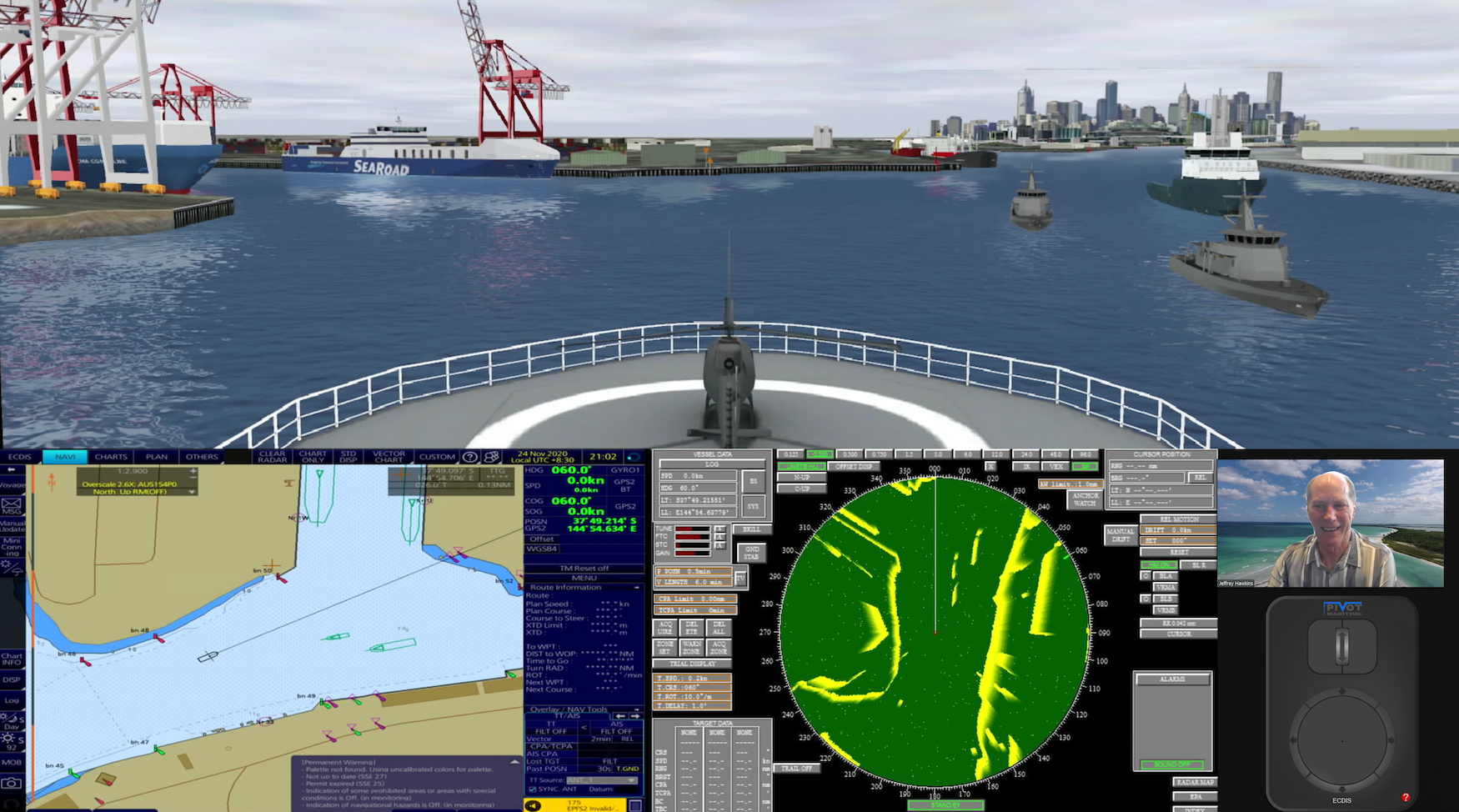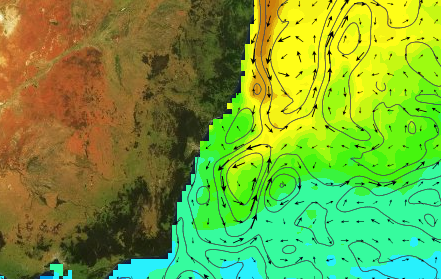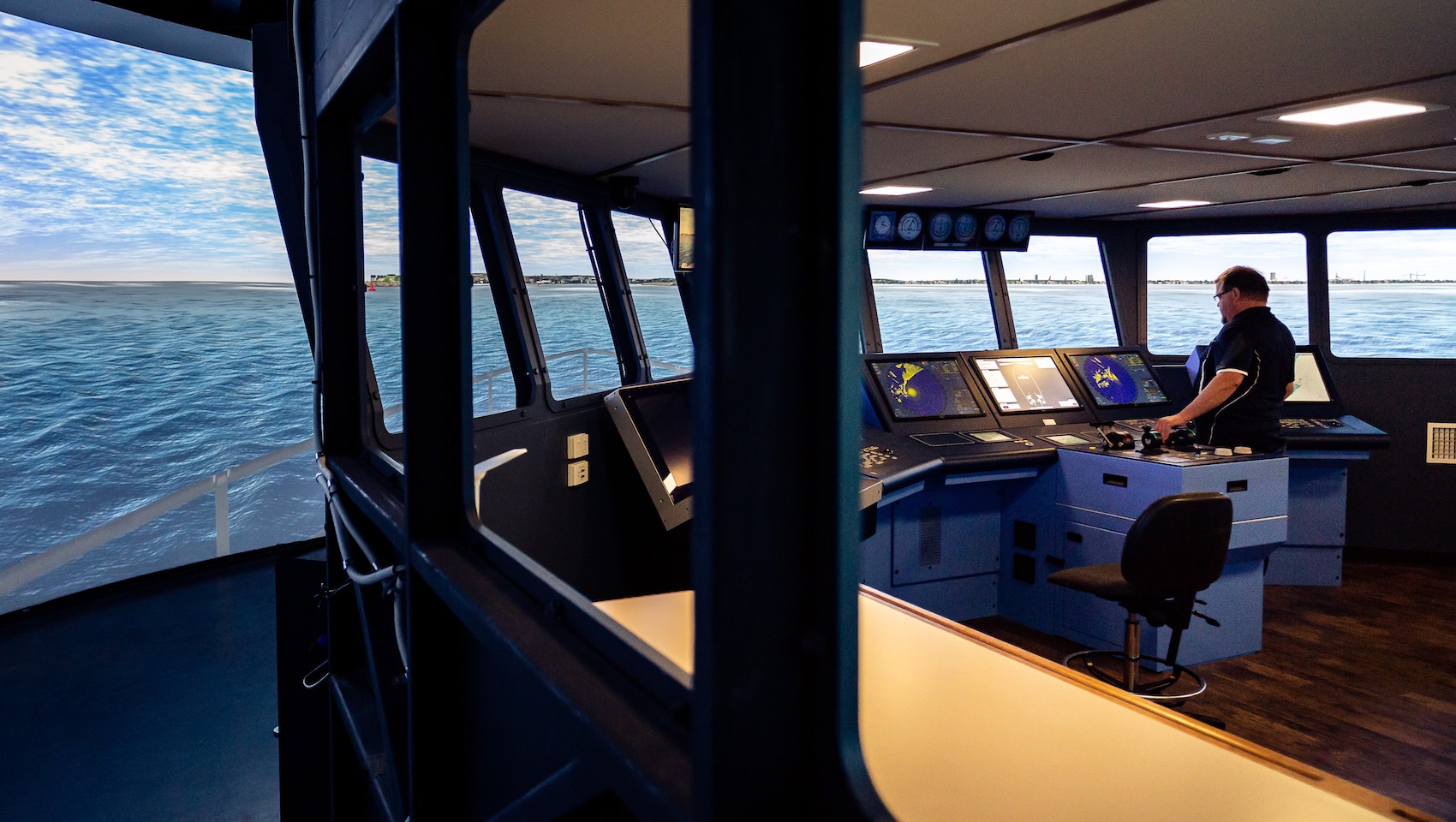Promoted by Defence Tasmania
Using cutting edge science, technology and state-of-the art facilities, Tasmania delivers unique systems and services for port and ship operations projects.
Tasmania’s Defence Advocate, Rear Admiral (Rtd) Steve Gilmore, said Tasmania’s maritime industry has decades of unrivalled experience working with navies, maritime security agencies and commercial operators to design and develop bases and ports and improve ship operations and marine safety.
“Our advanced maritime modelling and simulation capabilities are in demand by some of the world’s most complex port and ship operations projects,” Rear Admiral (Rtd) Gilmore said.
Tasmania’s capabilities and services include ship and port modelling, real-time and fast-time maritime simulations, scientific and environmental data collection and analysis, port construction services, port operations training and port operations software development.
AMC Search, the training and consultancy division of the Australian Maritime College, provides clients in defence and commercial maritime sectors with exclusive access to the Kongsberg powered Centre for Maritime Simulations (CMS) in Launceston.
Using the latest hydrodynamic modelling technology for ultra-realistic port and vessel interactions, the CMS simulates infrastructure and environments to test and optimise operations and systems.
With an improved physics engine to power simulations, the CMS provides six degrees of motion for enhanced vessel manoeuvring accuracy, supporting full interaction studies between shore and maritime objects and vessels.
This provides users with realistic behaviours that help identify efficiency and safety improvements to port operations such as wharf and channel design, tug and mooring operations.
CEO Dean Cook said AMC Search works closely with clients to simulate and review their own maritime logistics operations, helping identify efficiencies and familiarising personnel with new procedures.
“AMC Search’s simulation services significantly reduce risks for developers by providing informed data for planners to make decisions. This is based on a deep understanding of how a new or improved port development will realistically support operations and safe navigation.”
“The modelling and simulations help developers obtain a maximum return on investment as designs can be changed or adapted well before work begins on site, avoiding unexpected and costly mistakes or oversights.”
AMC Search recently undertook an advanced simulation project related to government plans to upgrade defence infrastructure in northern Australia.
“Models and simulations of key assets were developed and implemented and they are being used to inform decision-making about the future development of strategic maritime related defence infrastructure in Australia’s north,” Mr Cook said.
Pivot Maritime International is a pioneer in producing portable, compact and robust simulators for harsh defence and commercial environments. With more than 25 years of industry experience, Pivot is Australia’s only manufacturer of maritime simulators.

Pivot simulators provide high levels of accuracy and realism for testing new ship designs, assessing vessel ship handling and manoeuvrability capabilities, maintaining navigator competence, and evaluating port capabilities, infrastructure and channel designs. For port development, Pivot's unique capabilities in fast-time simulation have resulted in significant cost savings and greater safety outcomes.
With a strong focus on precision and fidelity, Pivot was chosen to work on two of the world’s largest port development projects - BHP’s Quantum project and the Chevon Oil Gorgon project in Western Australia. Pivot’s discriminators have also led to a partnership with global giant Furuno of Japan, with Furuno navigation equipment used on Pivot’s simulators for portable training and assessment.
Pivot’s ship-specific simulators are increasingly being embarked in naval ships world-wide for mission rehearsal, risk evaluations and for keeping ship’s crew in peak performance.
The New Zealand Defence Force recently leased one of Pivot’s portable simulators for HMNZS Manawanui to assist with on-board rehearsals and training. A portable simulator was also embarked in HMAS Canberra for the Australian Defence Force’s 2019 Indo Pacific Endeavour deployment, where it was demonstrated to several South East Asian navies.
Managing Director Dr Jeffrey Hawkins said with travel being restricted due to the COVID-19 pandemic, Pivot has developed a new streaming technology that allows both Pivot and clients to securely and synchronously operate and control both the simulation and real navigation equipment.
“This has been a game changer for clients who want to use simulation and the same type-approved navigation equipment they have on their vessels in various locations at the same time,” Dr Hawkins said.
The design and operation of bases and ports can be further enhanced by incorporating metocean data provided by companies like Tidetech, which specialises in producing detailed, accurate and validated data on tidal and ocean currents, weather, waves and sea temperature.

Tidetech’s team of world-leading scientists, developers and navigators has created an industry-leading data platform to manage large scale, complex meteorological and oceanographic datasets. These datasets can be integrated with Pivot’s systems to enhance modelling of port design and operations.
Managing Director Penny Haire said while Tidetech’s data is mainly used by thousands of ships worldwide to save fuel and reduce emissions, it can also enhance military activities by improving situational awareness and real time understanding of environmental factors.
“Using the latest science and technology, Tidetech can synthesise forecast data to inform planning for maritime operations and provide real-time high resolution data and intelligence during operations,” Ms Haire said.
Tasmania’s innovative and experienced maritime industry is well placed to work with naval, maritime security and commercial operators to meet their port development, ship operations and marine safety requirements.
More information on Tasmania’s defence industry is available through the Defence Tasmania Industry Directory at https://www.stategrowth.tas.gov.au/business/sectors/defence
More information on Tasmania’s maritime industry is available through the Tasmania Maritime Network at https://www.tmn.org.au/
 Login
Login






